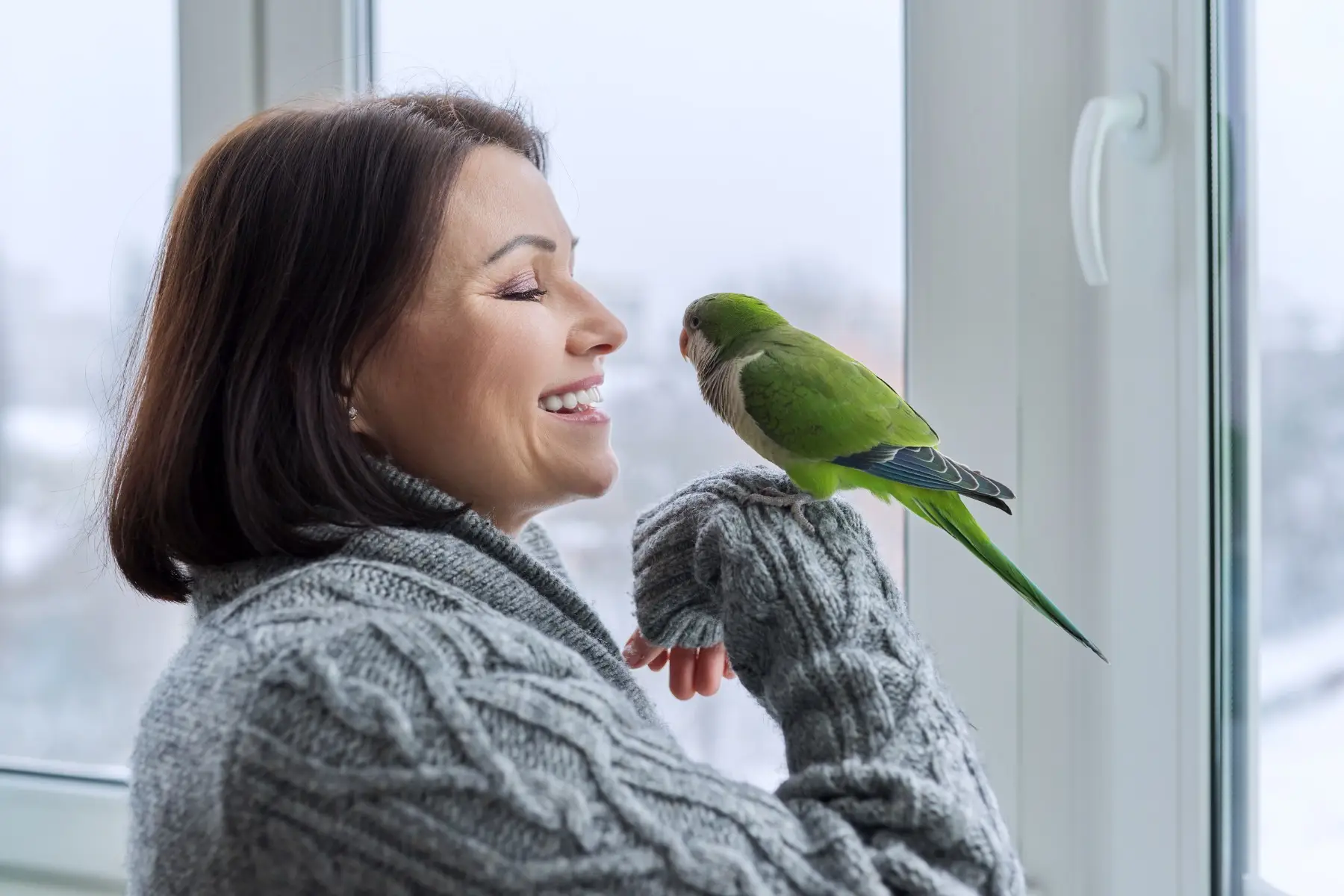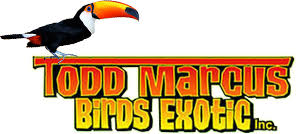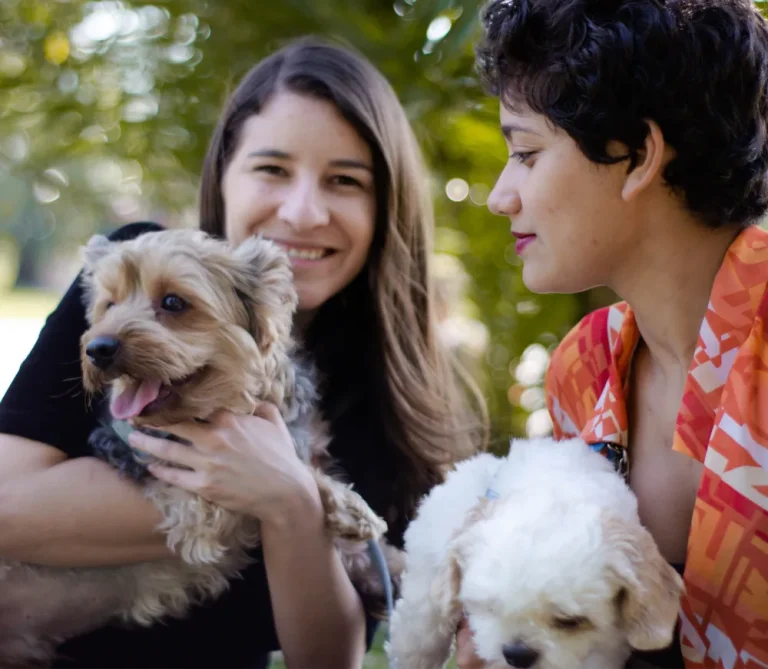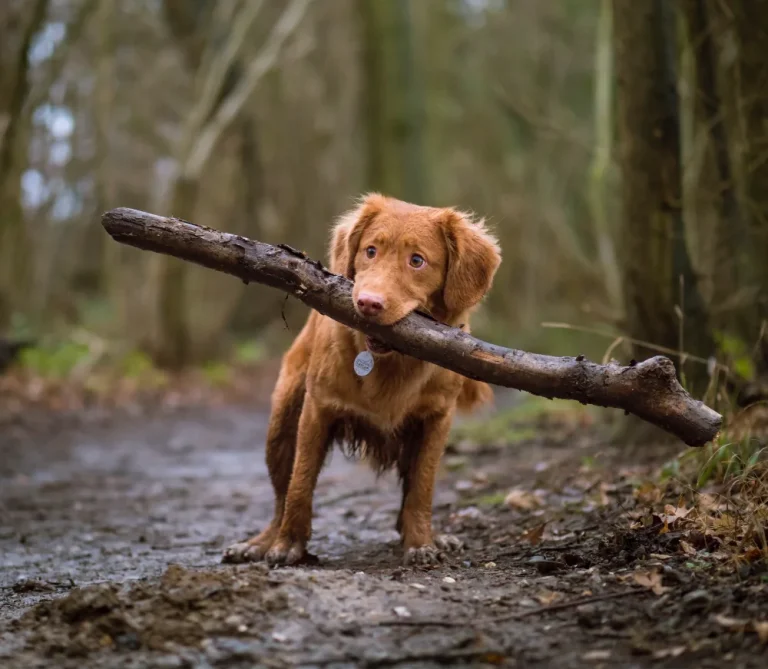
There’s something magical about sharing your home with an exotic bird. Their vibrant colors, charming personalities, and the melodic sounds they bring create a unique companionship unlike any other pet. As more households discover the joy of avian companions—with exotic bird ownership increasing nearly 15% in the past five years—we at Todd Marcus Birds Exotic want to ensure new bird parents are fully prepared for this rewarding journey.
With nearly four decades of experience matching birds with loving homes, we’ve created this comprehensive guide to help you navigate the exciting process of welcoming your first feathered friend.
Choosing the Right Bird Species for Your Lifestyle
The single most important decision in your bird ownership journey is selecting a species that aligns with your lifestyle. Consider these crucial factors:
Space Requirements
Birds need room to stretch their wings, play, and explore. A Hyacinth Macaw requires significantly more space than a Cockatiel. Be honest about the area you can dedicate to your new companion.
Noise Tolerance
Some birds are naturally more vocal than others. If you live in an apartment or value a quieter environment, a Cockatiel or Parrotlet might be more suitable than a Sun Conure, known for its enthusiastic vocalizations.
Time Commitment
Exotic birds are social creatures requiring daily interaction. Some species need several hours of direct attention each day to remain mentally healthy. Consider your work schedule and social commitments before choosing a highly social species.
Budget Considerations
Initial purchase price is just the beginning. Factor in the cost of quality housing, nutrition, toys, and regular veterinary care.
Beginner-Friendly Species
Cockatiels: With their friendly demeanor and manageable size, Cockatiels make excellent first birds. They’re relatively quiet (though they do whistle), adaptable to household routines, and bond well with caregivers without demanding constant attention.
Lovebirds: These small, colorful birds are full of personality. They require less space than larger parrots but still offer engaging companionship. They do best with regular handling and consistent interaction.
Conures: Green-cheeked Conures, in particular, offer a good balance of playfulness and manageable noise levels for those wanting a slightly larger bird with more interactive potential.
Creating the Perfect Environment
Your bird’s housing is more than just a cage—it’s their primary territory and safe space.
Cage Selection Guidelines
Appropriate Sizing: The minimum cage size should allow your bird to fully extend its wings without touching any side, plus room to move about comfortably. Bigger is always better—the largest cage you can afford and accommodate is recommended.
Bar Spacing: This critical feature prevents escape or injury. Smaller birds like Lovebirds need bars spaced no more than ½-inch apart, while larger species require wider spacing for visibility and to prevent head entrapment.
Cage Placement: Position the cage against a wall (rather than in the center of a room) to promote security. Avoid kitchens (toxic fumes from non-stick cookware), drafty areas, or direct sunlight. A location where the bird can observe family activities while having a quiet retreat is ideal.
Essential Accessories
Perches: Provide various diameters and textures to exercise feet and prevent pressure sores. Natural wood branches, rope perches, and specialized textured perches all serve different health purposes.
Food and Water Stations: Multiple feeding locations prevent resource guarding in multi-bird households and provide enrichment. Stainless steel is preferable for hygiene.
Mental Stimulation: Toys should be rotated weekly to prevent boredom. Include items for chewing, foraging, and problem-solving appropriate to your bird’s size and temperament.
Temperature and Safety
Maintain ambient temperatures between 65-85°F (18-29°C). Be vigilant about household hazards including:
- Non-stick cookware fumes
- Scented candles and air fresheners
- Toxic houseplants
- Unsupervised ceiling fans
- Open doors or windows
- Other household pets
Nutrition Fundamentals
Proper nutrition is the foundation of avian health, with dietary requirements varying significantly between species.
Basic Dietary Components
Specialized Pellets: These should constitute 60-80% of most birds’ diets, providing balanced nutrition without the selective eating that can occur with seed mixes.
Fresh Foods: Offer dark leafy greens, colorful vegetables, and limited fruits daily. These provide essential nutrients and environmental enrichment through foraging.
Limited Seeds: While seeds are natural foods for birds, they’re high in fat and should be offered as treats rather than dietary staples for most species (with exceptions for certain finches and canaries).
Clean Water: Always available and changed twice daily.
Species-Specific Considerations
Cockatiels and Budgies: Require higher seed ratios than larger parrots.
Lories and Lorikeets: Need specialized nectar diets supplemented with fruits.
Macaws: Require extra nuts for healthy fat content.
At Todd Marcus Birds Exotic, we provide detailed feeding protocols tailored to each species we offer, including portion sizes and recommended fresh foods.
Socialization and Training Basics
Birds are highly social creatures with cognitive abilities comparable to young children in many species. Early socialization sets the foundation for a lifetime of positive interaction.
Bonding Techniques
Hand-Feeding Advantages: Birds that have been hand-fed during weaning often develop stronger human bonds. Our weaning program allows you to participate in this crucial process even if you lack experience.
Daily Interaction: Even 15-30 minutes of focused attention outside the cage several times daily helps establish trust and prevents behavioral issues.
Respect Body Language: Learn to recognize stress signals such as regurgitation, feather fluffing, or rapid eye movement (pinning).
Basic Training
Start with simple step-up commands using positive reinforcement (never punishment). Consistency is key—use the same verbal cues and reward system. Once basic trust is established, most birds enjoy learning simple tricks that provide mental stimulation.
Healthcare Essentials
Preventative care significantly extends your bird’s lifespan and quality of life.
Veterinary Partnership
Establish a relationship with an avian veterinarian before emergencies arise. Schedule an initial check-up within the first week of bringing your bird home, then annual examinations thereafter.
At-Home Monitoring
Weigh your bird weekly on a gram scale to catch subtle changes. Monitor droppings, appetite, energy levels, and respiratory patterns. Keep detailed records of any changes to share with your veterinarian.
Common Health Concerns
Be vigilant for signs requiring immediate veterinary attention:
- Difficulty breathing or tail bobbing
- Significant appetite changes
- Unusual droppings (color, consistency, or frequency)
- Lethargy or fluffed appearance
- Discharge from eyes or nostrils
The Todd Marcus Weaning Program
Our specialized program sets us apart from other exotic bird retailers. When you select a young bird from Todd Marcus Birds Exotic, you’re invited to participate in the critical weaning process.
How It Works
- Your selected bird remains at our facility during weaning, receiving expert care and nutrition.
- You visit regularly to build bonds and learn proper handling techniques.
- Our staff guides you through the transition from hand-feeding to self-feeding.
- You learn to identify normal behaviors and potential concerns.
- We provide complete documentation of your bird’s health history and dietary preferences.
This program has successfully prepared thousands of birds and their owners for harmonious relationships. As Sarah T., one of our customers, shares: “The weaning program gave us the confidence to bring home our African Grey. The staff’s guidance during those early weeks was invaluable—they didn’t just sell us a bird; they prepared us for a 30+ year relationship.”
Your Lifelong Journey Together
Bringing home your first exotic bird marks the beginning of a fascinating journey. Many of our customers describe their birds as “life-changing companions” that bring joy, laughter, and surprising emotional connection to their homes.
Remember that we remain a resource long after your purchase. Our team is available for questions, our store stocks all the supplies you’ll need, and our community events provide opportunities to connect with other bird enthusiasts.
Ready to meet your perfect feathered companion? Visit our 10,000 square foot facility housing dozens of species from beginner-friendly Cockatiels to rare Toucans and Macaws. Our knowledgeable staff will help match you with a bird that fits your lifestyle, experience level, and goals as a bird owner.
Todd Marcus has been breeding and caring for exotic birds for nearly 40 years. His family-owned facility is recognized nationally for ethical breeding practices and comprehensive customer education programs.




